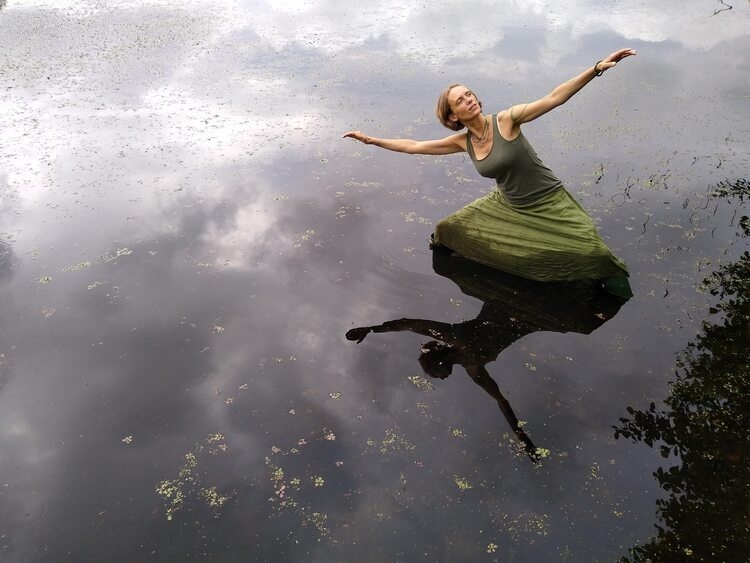In-Person
Healing with More-than-Humans: Environment, Historicities, and Sacred Materialities

- Thu Mar 26, 2026 10:00 a.m.—6:00 p.m.
- Fri Mar 27, 2026 10:00 a.m.—6:00 p.m.
406 Prospect Street New Haven, CT 06511
- General Public
This symposium will be held primarily at Miller Hall (406 Prospect St., New Haven), with a portion at the Sterling Divinity Quadrangle's Great Hall (409 Prospect St., New Haven). This is a hybrid event, with attendance feasible both in-person and via webinar link.
The event Healing with More-than-Humans: Environment, Historicities, and Sacred Materialities is a two-day symposium bringing together scholars in the field of anthropology and practitioners (religious practitioners, healers, dancers and artists). The event will be held in a hybrid format with speakers attending in person at the Yale Institute of Sacred Music along with the Yale community, and online attendance will also be made available. The event merges scholarly paper sessions with expressive culture workshops, such as dance, storytelling, sacred art and performances centered around the relationship with more-than-humans held by anthropologists-practitioners.
This symposium explores the connections between sacred histories, historicities—i.e., the ways in which time and temporality are understood, experienced, and lived—and well-being by means of an engagement with more-than-humans through expressive and material cultures.
The notion of historicity is a key one in the “anthropology of history” subfield that emerged recently with the aim of offering ethnographic accounts of the many alternatives to the historicist “linear” approach to time and history (see, e.g., Stewart 2012, 2016, Stewart and Palmié 2016). This historicist framework that pervades academic disciplines is commonly and mistakenly perceived as the “natural” way to understand and experience time and history—when it is, in fact, a specific one and certainly not the only one. A recent corpus of work on time and temporality has produced key contributions to the analyses of historical consciousness and to the deconstruction of mainstream Western approaches to time and history. This literature, by challenging prevailing embodied understandings and interpretations of time, also proves to be an important reference point for the study of contemporary spiritualities and relational ontologies (otherwise called “neo-animism”), also in relation to the pursuit of well-being (Parmigiani 2024).
The environmental crises and the threat of ecological collapse have prompted many spiritual traditions to direct their ritual practices toward environmental action. Spiritual cosmologies, particularly those embedded in Indigenous and animist worldviews, but also in modern reinterpretations of Judeo-Christian religions, emphasize relationality with the more-than-human world—plants, animals, and even landscapes as active agents. These cosmologies not only integrate nature into spiritual practice but offer alternative ways of living, engaging with time and temporality, encouraging actions that prioritize care and sustainable coexistence with the environment. In this way, ritual expressions and practices reconfigure themselves as a way to reconnect with more-than-human entities and re-act to the impending ecological collapse.
By following an understanding of performance as performative (Lowell Lewis 2013) and of interpretation as both understanding and performing (possibly, understanding while performing, see Lambek 2014), this symposium will dovetail academic research on more-than-human engagements and spirituality with experiential, body-centered, learning. In particular, through dance and embodied practices, sacred performances and art, and the creation of altars, we will explore ways to experience and engage with other-than-humans and to “interpret” sacred histories and historicities. The latter, by reframing our being in time, will offer insights into the connections between historicities and healing.
Free and open to the public.
Please register if you plan on attending lunch at the symposium. Registration is only required for lunch and not for the overall event.
This symposium is convened by Emily Pierini, Giovanna Capponi and Giovanna Parmigiani. Sponsored by the Institute of Sacred Music’s Religion, Ecology, and Expressive Culture Initiative.
Speakers:
- Ana Mariella Bacigalupo
- Debora Campa
- Giovanna Capponi
- Fadeke Castor
- Yael Dansac
- Eline Kieft
- Giovanna Parmigiani
- Emily Pierini
- Paul Stoller
- Martin Tsang
Contact: Katya Vetrov
Photo credit: Henk Kieft